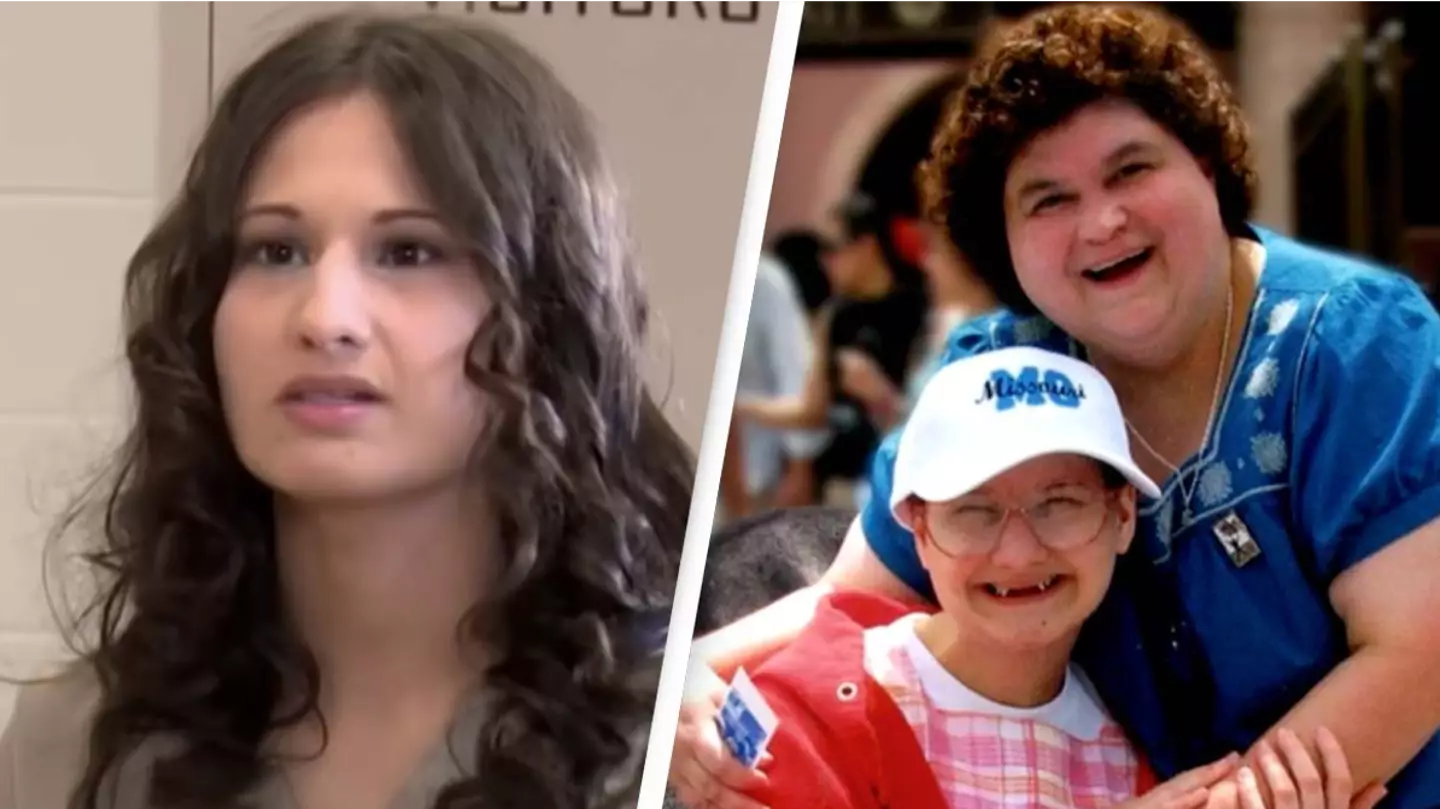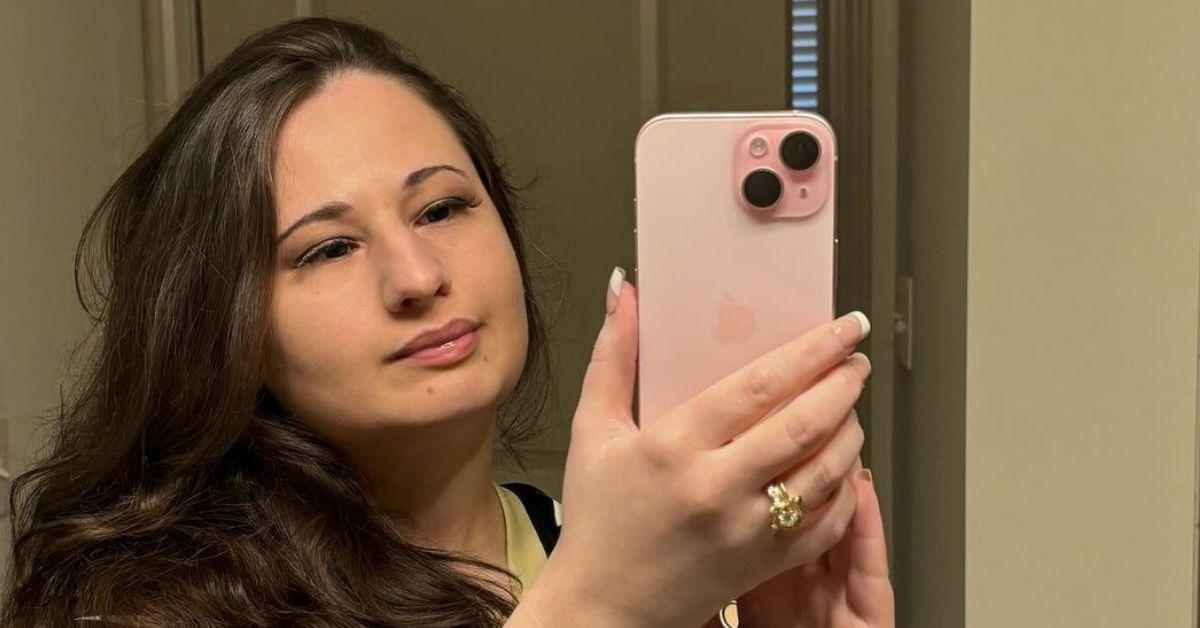Picture this: a story so twisted it feels like it came straight out of a thriller novel. But guess what? This is real life, folks. The case of Gypsy Rose Blanchard has captured global attention, and one of the most asked questions is, "How old was Gypsy Rose when she killed her mom?" It's a chilling tale that leaves us questioning the boundaries of trust, love, and manipulation. Today, we’re diving deep into this dark chapter, peeling back the layers of what really happened and why it matters.
This isn’t just another true crime story; it’s an exploration of human psychology, relationships, and the lengths people go to escape suffocating control. Gypsy Rose’s journey from a young girl trapped in a web of lies to becoming a central figure in a shocking murder investigation is both tragic and fascinating. So buckle up, because this is going to be intense.
Before we dive headfirst into the details, let’s set the stage. This article will explore everything you need to know about Gypsy Rose Blanchard, her complicated relationship with her mother, and the events that led to one of the most talked-about crimes of recent years. If you’ve ever wondered how someone could be driven to such extremes, this story will leave you with more questions than answers. Let’s get started.
Read also:Top Mkv Movies Download Sites You Need To Know About
Table of Contents
Biography of Gypsy Rose Blanchard
The Troubled Relationship with Her Mother
False Diagnoses and Medical Fraud
How Old Was Gypsy Rose When She Killed Her Mom?
Read also:Raiders Safety Scores Big Bonus A Gamechanger In The Nfl Scene
Biography of Gypsy Rose Blanchard
Gypsy Rose Blanchard, born in 1991, became infamous after being convicted of conspiring to murder her own mother, Debra Blanchard. Her story unfolded in a way that shocked the world, revealing a life filled with deception, manipulation, and ultimately, betrayal. Below is a quick overview of her life through a biographical lens:
Bio Data of Gypsy Rose Blanchard
| Full Name | Gypsy Rose Blanchard |
|---|---|
| Date of Birth | January 12, 1991 |
| Place of Birth | Springfield, Missouri, USA |
| Occupation | Former Patient, Convicted Felon |
| Known For | Conspiracy to Murder Her Mother |
Her life was anything but ordinary, and the events leading up to her conviction are as dramatic as they are disturbing. But before we delve into the crime itself, let’s take a closer look at her early years and the manipulative environment she grew up in.
Early Life and Manipulation
Gypsy Rose’s early life was defined by her mother’s overbearing control and elaborate schemes. Debra Blanchard, her mom, claimed that Gypsy suffered from numerous severe illnesses, including muscular dystrophy and leukemia. These claims resulted in Gypsy being confined to a wheelchair and receiving unnecessary medical treatments throughout her childhood.
The reality? None of these illnesses were real. Debra fabricated them all, a condition now recognized as Munchausen syndrome by proxy. This form of abuse involves a caregiver deliberately falsifying or inducing illness in someone under their care. For Gypsy, this meant living in constant fear and dependency on her mother, who controlled every aspect of her life.
- Kept out of school to prevent others from questioning her medical conditions
- Underwent multiple surgeries and treatments that were later proven unnecessary
- Lived in isolation, cut off from peers and the outside world
This manipulation didn’t just affect her physically; it also had profound psychological effects. Growing up in such a toxic environment, Gypsy developed a distorted sense of reality, one where her mother’s word was absolute truth.
The Troubled Relationship with Her Mother
The relationship between Gypsy Rose and her mother was anything but normal. Debra’s control went beyond mere parental oversight—it was all-encompassing. She dictated every move Gypsy made, from the food she ate to the friends she could have (if any). Over time, this toxic dynamic created a powder keg of emotions within Gypsy.
Gypsy’s resentment toward her mother grew as she reached adolescence. She began to realize the extent of the lies she had been living under and the freedom she had been denied. This realization fueled her desire to break free, but escaping someone as manipulative as Debra wasn’t going to be easy.
- Debra monitored all communication, ensuring no outside influences could “corrupt” Gypsy
- Gypsy was often forced to wear hospital gowns and use medical equipment unnecessarily
- The emotional toll of living under such oppressive conditions was immense
As Gypsy matured, she started finding ways to rebel against her mother’s control, setting the stage for what would eventually become a deadly confrontation.
False Diagnoses and Medical Fraud
Debra Blanchard’s fabrication of Gypsy’s illnesses wasn’t just a personal vendetta—it was a criminal enterprise. By convincing doctors and hospitals that Gypsy was severely ill, Debra gained access to financial benefits, attention, and sympathy from others. This form of medical fraud is not only unethical but also illegal.
When Gypsy finally escaped her mother’s grasp, medical professionals conducted thorough examinations and discovered that she was, in fact, healthy. The truth came out, exposing Debra’s sinister actions and the years of abuse Gypsy endured. This revelation was crucial in building the case against Debra and later, in understanding Gypsy’s motivations for seeking justice.
- Doctors testified that Gypsy’s supposed illnesses were entirely fabricated
- Financial records showed Debra profiting from her daughter’s supposed conditions
- The deception spanned over two decades, affecting countless medical professionals
This aspect of the case highlights the darker side of human nature and the lengths some will go to maintain control over others.
The Murder Plot
With the truth about her life finally coming to light, Gypsy began plotting her escape. But escaping Debra wasn’t enough—she wanted to ensure that her mother could never harm her again. Enter Nick Godejohn, a man Gypsy met online who became her confidant and eventual accomplice in the murder plot.
The plan was simple yet horrifying: Nick would travel to Missouri, where Gypsy lived, and kill Debra. On July 22, 2015, the plan was executed. Debra Blanchard was stabbed multiple times and died at the scene. Gypsy and Nick were soon arrested and charged with first-degree murder.
- Gypsy and Nick communicated via encrypted messaging apps to plan the murder
- Evidence showed that Gypsy played an active role in orchestrating the crime
- The investigation revealed the depth of their collaboration and premeditation
This act of violence shocked the nation and raised important questions about accountability, mental health, and the justice system’s ability to handle such complex cases.
How Old Was Gypsy Rose When She Killed Her Mom?
Now, let’s address the burning question: how old was Gypsy Rose when she killed her mom? At the time of the murder, Gypsy Rose Blanchard was **24 years old**. This age is significant because it highlights the maturity and agency she possessed when making the decision to take her mother’s life.
While some might argue that her actions were influenced by years of abuse and manipulation, others point out that she made a conscious choice to participate in a premeditated murder. Regardless of perspective, her age adds another layer of complexity to an already complicated case.
- Gypsy was 24, legally an adult, when she conspired to kill her mother
- The impact of her upbringing on her decision-making remains a topic of debate
- Her age raises questions about whether she fully understood the consequences of her actions
This aspect of the case continues to spark discussions about responsibility and culpability in situations involving prolonged abuse.
The Trial and Sentencing
The trial of Gypsy Rose Blanchard and Nick Godejohn was highly publicized, with both defendants facing life sentences. During the proceedings, evidence was presented detailing the extent of Debra’s manipulation and the impact it had on Gypsy’s life. However, the court ultimately found both Gypsy and Nick guilty of first-degree murder.
Gypsy was sentenced to **life in prison without the possibility of parole**, while Nick received a similar sentence. The verdicts were met with mixed reactions, with some believing justice was served and others questioning the fairness of holding Gypsy accountable for actions taken under extreme duress.
- Both Gypsy and Nick were convicted of first-degree murder
- The trial brought to light the dark realities of Munchausen syndrome by proxy
- Public opinion remains divided on the fairness of the sentencing
This legal outcome underscores the challenges faced by the justice system when dealing with cases involving abuse and manipulation.
Psychological Insights
Understanding the psychological factors at play in this case is crucial. Gypsy grew up in an environment where her sense of self was constantly undermined by her mother’s manipulation. Years of living under such conditions can have lasting effects on a person’s mental health and decision-making abilities.
Experts suggest that Gypsy’s actions may have been influenced by a desire to reclaim control over her life after years of being controlled. However, this doesn’t excuse the crime itself. Instead, it highlights the importance of addressing underlying issues like abuse and mental health in the justice system.
- Gypsy’s upbringing likely contributed to her distorted perception of reality
- The trauma of living under Debra’s control may have affected her judgment
- Psychological evaluations revealed the depth of her emotional scars
This case serves as a reminder of the complexities involved in understanding human behavior, especially in situations involving prolonged abuse.
Impact on Society
The Gypsy Rose Blanchard case had a profound impact on society, sparking conversations about abuse, mental health, and the justice system. It brought attention to Munchausen syndrome by proxy, a condition that was previously little-known to the general public. Additionally, it raised questions about how we handle cases involving victims who turn perpetrators.
Shows like "The Act" on Hulu further amplified the story, bringing it to a wider audience and encouraging discussions about the themes it explores. While the case may be over legally, its implications continue to resonate with those seeking answers about the human condition.
- Increased awareness of Munchausen syndrome by proxy
- Conversations about accountability in cases involving abuse
- Media portrayals of the case have sparked widespread interest and debate
This impact serves as a testament to the power of storytelling in driving societal change.
Conclusion and Reflections
So, how old was Gypsy Rose when she killed her mom? Twenty-four. A young woman who had lived a lifetime of lies and manipulation finally reached her breaking point. Her story is a cautionary tale about the dangers of unchecked power and the importance of recognizing and addressing abuse early on.
As we reflect on this case, it’s essential to remember that Gypsy’s actions, while heinous, were shaped by years of trauma. This doesn’t justify her crime but provides context for understanding her motivations. Moving forward, we must strive to create systems that protect victims without perpetuating cycles of violence.
I urge you to share this article, leave your thoughts in the comments, and continue the conversation. Together, we can work toward a future where stories like Gypsy Rose’s are no longer the norm. Stay informed, stay engaged, and most importantly, stay human.


